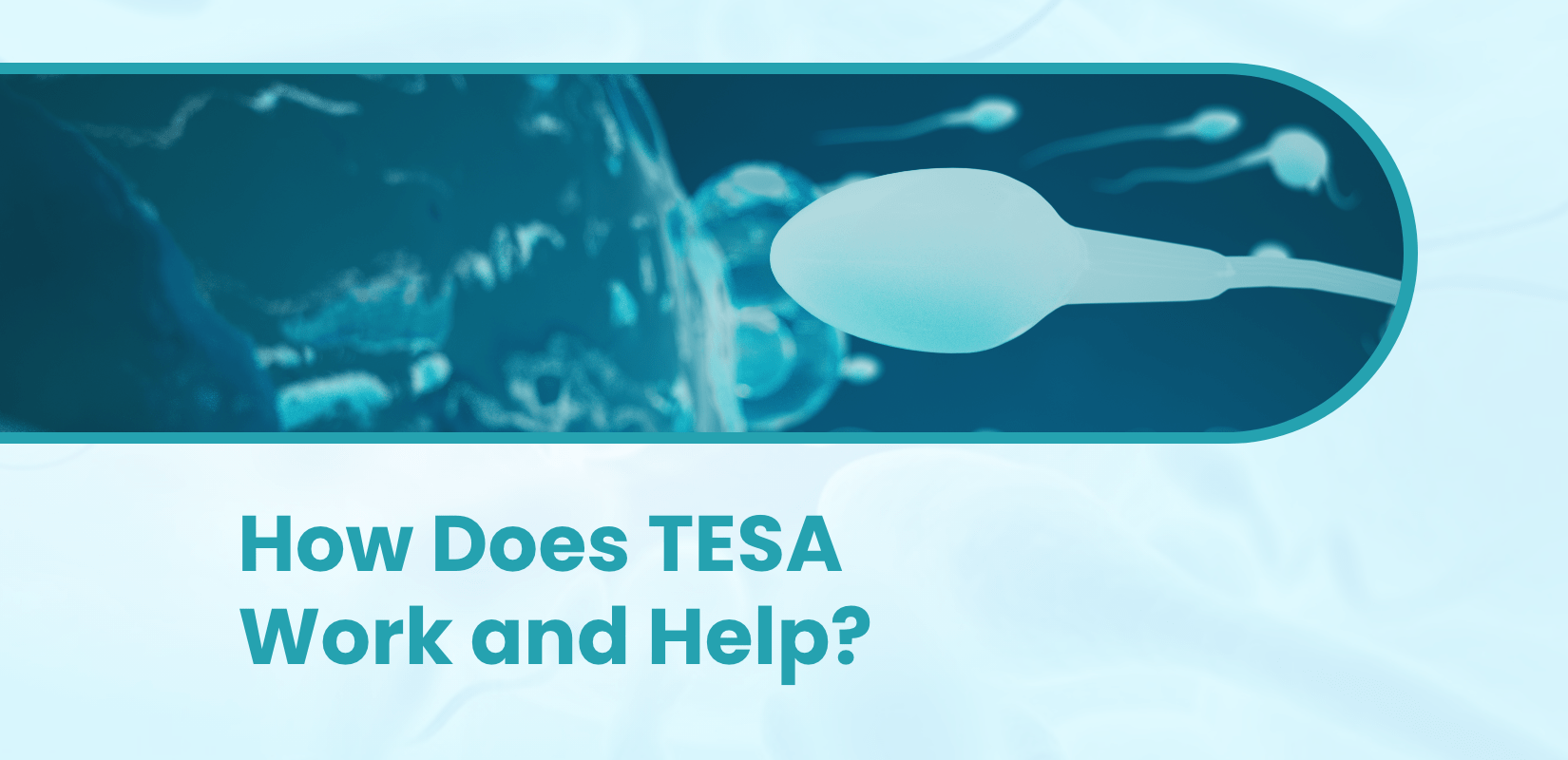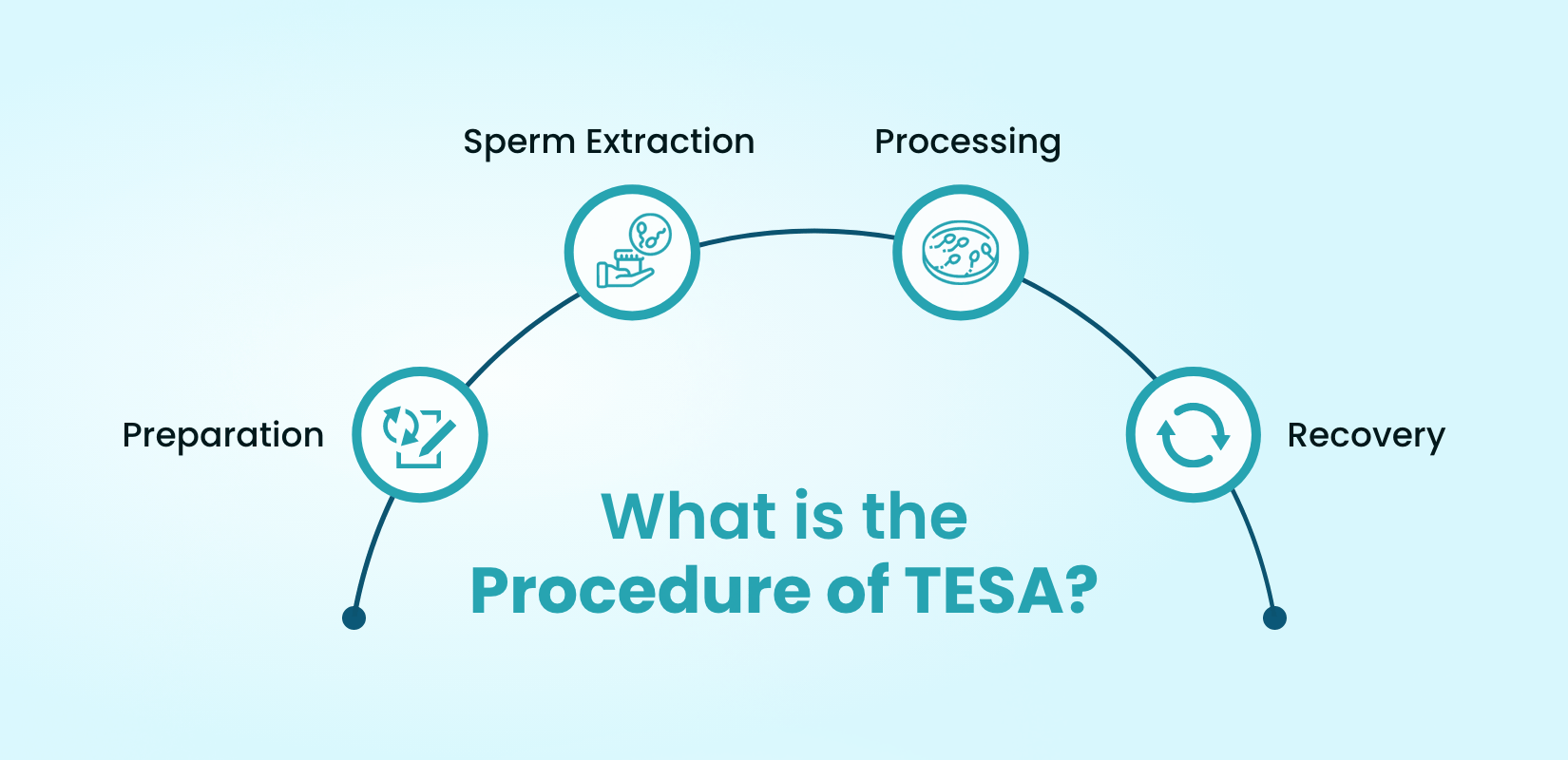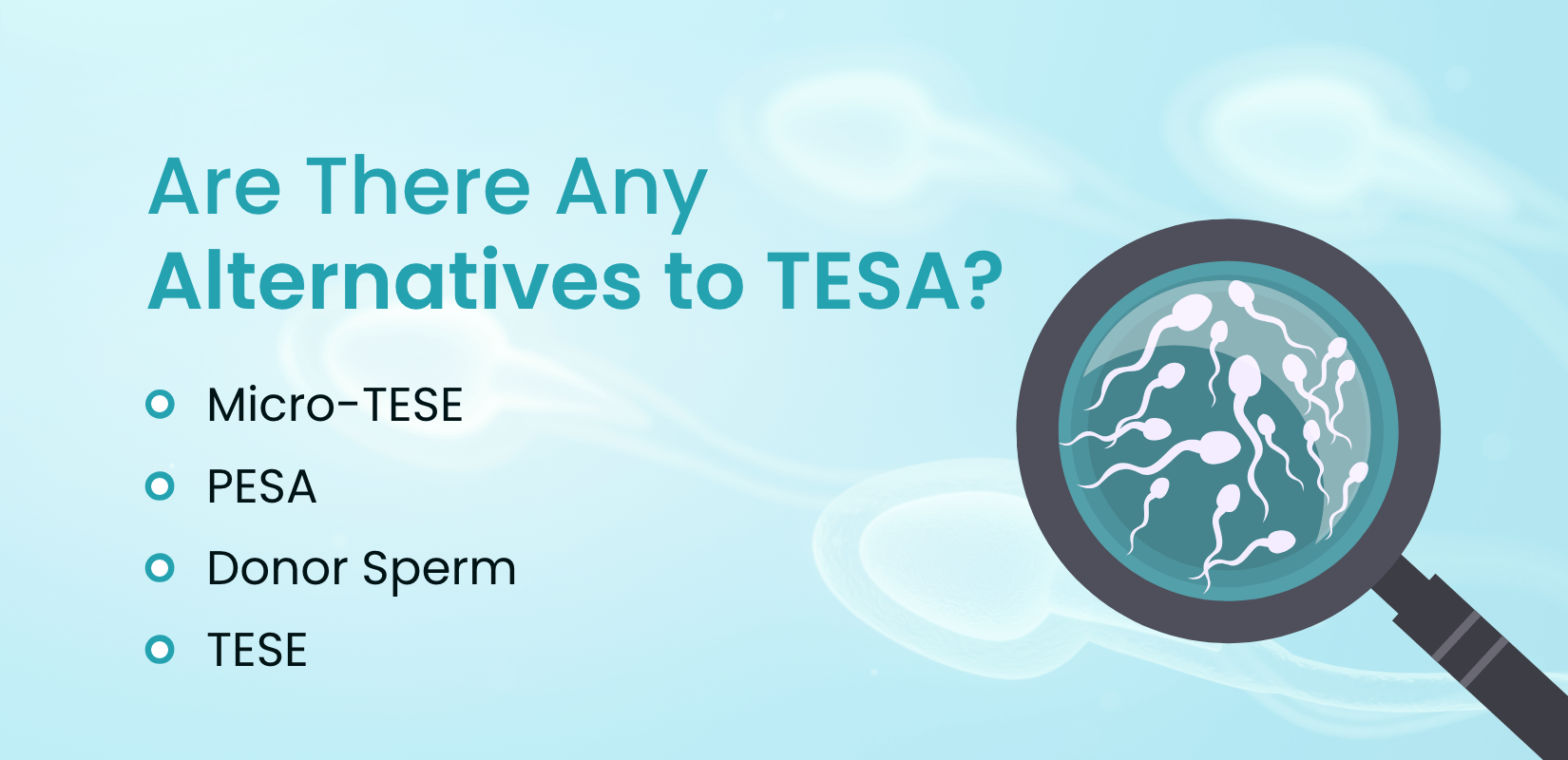
Male infertility is always a matter of concern for thousands of couples worldwide. There can be different causes of infertility, including the quality and quantity of sperm in men, and sometimes the inability to ejaculate may also become the major cause. In such cases, sperm aspiration is a proven treatment option to treat man infertility and helps couples start a family.
Testicular Sperm Aspiration – in simple words, TESA is a surgical procedure used to retrieve sperm directly from the testicles of men who have fertility problems. TESA is typically used in cases where a man's semen does not contain enough sperm or where the sperm are not motile enough to fertilize an egg.
TESA is typically used in cases where the man has a low sperm count or no sperm present in his semen. Some specific conditions that may lead a man to seek TESA include:
Cases may vary and hence the treatment. It's important to consult with a qualified fertility specialist to determine the best course of action for your situation and come up with the best cure.

At Juhi Fertility Clinic, our fertility specialist does adequate tests to ensure you are all fit and fine to start with the TESA procedure. Here are the general steps that we follow to start with the TESA procedure and come up with the result:
It's important to note that TESA is not always successful in finding viable sperm. Sometimes, the specialists recommend repeating the procedure or stepping ahead with a different sperm retrieval technique.
The success rates of TESA, or Testicular Sperm Aspiration, can vary depending on various factors, such as the underlying cause of infertility, the age and overall health of the man, and the technique used for sperm retrieval.
If viable sperm are retrieved through TESA, the success rates of assisted reproductive techniques such as in vitro fertilization (IVF) can also vary depending on various factors. For example, the female partner's age, the quality of the retrieved sperm, and the success of the fertilization process can all impact the chances of a successful pregnancy.
In general, the men with obstructive azoospermia, the success rate of TESA is found to be close to 100%, but in other cases, like non-obstructive azoospermia, the rate varies from 30-50%. However, it's important to note that the success rates of TESA can vary widely depending on the specific situation.
The duration of a TESA treatment can vary depending on several factors, including the procedure's complexity and the patient's individual needs. Generally, a TESA procedure can be completed in less than an hour.
After the TESA procedure, the extracted sperm must be processed and prepared for use in assisted reproductive techniques, such as in vitro fertilization (IVF), which can take several weeks.

If TESA (Testicular Sperm Aspiration) is not a suitable option or if no viable sperm can be retrieved through TESA, there are several alternatives that our specialists at Juhi Fertility Clinic may consider. Some of the most common alternatives to TESA include:
As with any medical procedure, TESA (Testicular Sperm Aspiration) carries risks and potential complications. Some of the most common risks associated with TESA include the following:
The fertility experts at Juhi Fertility Clinic take care of all the safety and sanitary measures to leave no complications after TESA is completed.
The cost of sperm aspiration can vary depending on several factors, such as the type of sperm aspiration procedure and whether additional services are required. Juhi Fertility Clinic critically examines the case and then provides you with the best cost-effective TESA treatment plan, to begin with. To learn more about TESA cost, you can connect with one of our experts, discuss your concerns, and get the details of the complete cost of the TESA procedure.
Early detection of male infertility helps in diagnosing and treating the condition. If you and your partner have been trying to conceive for a long time and are not getting a successful result, book your earliest consultation with our expert team at Juhi Fertility Clinic. To learn more about our list of treatments, you can visit Juhi fertility clinic website or call us at our contact number to book the earliest appointment.
Your email address will not be published. Required fields are marked *